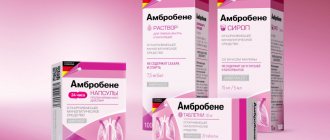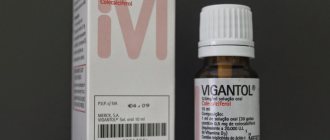Detailed description of the study
In the human body, to combat pathogens of viral infections, there is a system of interferons, which is of great importance in regulating innate and acquired immunity.
Interferons are a family of proteins that are released by various cells in response to viruses and bacteria. Currently, there are three types of interferons. They are classified according to their structure, interaction with specific receptors and physicochemical properties.
Type I interferons are important for protecting the body from pathogens. They have a variety of effects on the innate and acquired functions of immune cells when infected by viruses, bacteria, parasites and fungi.
Type I includes the following interferons: α, β, ω.
The first two are similar in their functions and form class I, and gamma interferons belong to type II.
Interferon alpha (cellular) is formed by blood cells - leukocytes - and actively responds to the penetration of infectious agents (viruses, bacteria) into the human body.
Interferon beta is synthesized by connective tissue cells - fibroblasts - and is also actively involved in the fight against infectious agents.
A representative of type II interferons is interferon-γ.
Interferon gamma is produced by T lymphocytes, providing immunomodulatory and antitumor effects. The antiviral activity of interferons is based on the regulation of innate and acquired immune mechanisms. As a result of the protective effect of interferons, the binding of the virus to cells and the penetration of viral particles into cells stops.
Imunorix is an immunostimulating drug whose active ingredient is pidotimod. This drug stimulates and regulates the cellular immunity of the human body due to its ability to activate the maturation of T-lymphocytes (blood cells). Imunorix also has a positive effect on macrophages, which capture antigen - a foreign substance. The drug is approved for use by children over 3 years of age and adults.
Pidotimod is used in the complex treatment of infections of the upper and lower respiratory tract - rhinitis, laryngitis, pharyngitis, as well as in the treatment of infections of the urinary system - cystitis, urethritis, pyelonephritis.
This study is conducted to evaluate the effectiveness of treatment with Imunorix and is based on determining interferon status (activity of alpha, beta and gamma interferons).
Assessing the body’s ability to produce these interferons against the background of complex treatment with Imunorix is necessary to select antiviral therapy taking into account the individual characteristics of the human body.
Use during pregnancy and breastfeeding
There is no or limited experience with the use of pidotimod during pregnancy (less than 300 pregnancy outcomes). Experimental studies in animals did not reveal any direct or indirect adverse effects on reproductive function.
The use of Imunorix should be avoided during the first trimester of pregnancy.
There is no data on the excretion of pidotimod or its metabolites in breast milk. Breastfeeding should be stopped during treatment with the drug to avoid exposure of the child to the active substance.
What else is prescribed with this study?
Humoral immunity (immunoglobulins IgA, IgM, IgG, IgE, circulating immunocomplexes, complement components C3, C4)
17.51. Ven. blood 8 days
3,890 ₽ Add to cart
Immune status (screening) (Phagocytic activity of leukocytes, cellular immunity, total immunoglobulin IgE, immunoglobulins IgA, IgM, IgG)
27.960. Ven. blood 3 days
7,640 ₽ Add to cart
Immune status expanded
17.61. Ven. blood 14 days
22 310 ₽ Add to cart
Cellular immunity (T-lymphocytes, T-helpers, T-cytotoxic cells, Immunoregulatory index, B-lymphocytes, NK-T cells, NK cells, Leukocyte formula)
17.50. Ven. blood 3 days
5 200 ₽ Add to cart
pharmachologic effect
Immunostimulating drug.
Pidotimod stimulates and regulates cellular immunity. Induces the maturation and formation of immunocompetent T-lymphocytes in case of their deficiency, which assume the role of coordinators of specific immunity under physiological conditions due to partial replacement or enhancement of the functions of the thymus gland. In addition, pidotimod stimulates macrophages, whose main function is to capture antigen and present it on the cell membrane in combination with histocompatibility antigens. The body's ability to resist infectious agents is expressed in effective specific immune, cellular and antigen-antibody protective responses.
Pidotimod exerts therapeutic effects through immunostimulating effects on innate immunity and antibody production, cellular immunity and cytokine production. Pidotimod increases the production of superoxide anions, tumor necrosis factor alpha, NO (bactericidal effect), as well as chemotaxis and, accordingly, phagocytosis. The drug also increases the cytotoxic activity of natural killer cells.
Pidotimod enhances the functional activity of T and B lymphocytes, increases stimulation of the antigen-antibody reaction and prevents the development of apoptosis induced by dexamethasone, 12-O-tetradecanoylphorbol-13-acetate and calcium ionophore A-23I87.
Pidotimod increases interleukin-2 (IL-2) levels in aged rats and IL-2 gene expression in the spleen of rats. In particular, pidotimod has been shown to have an immunostimulating effect in cases of immune system deficiency, as well as when it functions at a physiological level.
Imunorix solution for oral administration, 400 mg 7 ml 10 pcs
Registration Certificate Holder
POLICHEM (Luxembourg)
Dosage form
Medicine - Imunorix
Description
Oral solution
red-violet color, transparent, with the smell of wild berries.
1 fl.
pidotimod 400 mg
Excipients
: sodium chloride - 5.6 mg, sodium saccharinate - 5 mg, disodium edetate - 3.5 mg, trometamol - qs to pH 6.5, sodium methyl parahydroxybenzoate - 10.3 mg, sodium propyl parahydroxybenzoate - 1.6 mg, sorbitol 70% - 2500 mg, fruit flavoring (with smell forest berries) - 21 mg, anthocyanin dye - 5.6 mg, crimson dye [Ponceau 4R] - 0.5 mg, purified water - up to 7 ml.
7 ml - single-dose bottles made of transparent glass type III (10) - cardboard packs.
Indications
As part of complex therapy: immunocorrection for bacterial, fungal and viral infections of the upper and lower respiratory tract; immunocorrection for bacterial, fungal and viral urinary tract infections.
Contraindications for use
Children under 3 years of age, hypersensitivity to pidotimod.
pharmachologic effect
Immunostimulating agent. Pidotimod stimulates and regulates cellular and humoral immunity in conditions of immunodeficiency. Effect on T-cell immunity: enhances the activity of natural killer cells and activates phagocytosis. Effect on humoral immunity: increases the production of cytokines.
Drug interactions
Pidotimod may affect the effectiveness of drugs that suppress or stimulate the functional activity of lymphocytes.
Dosage regimen
Adults - 800 mg 2 times a day without meals for 15 days.
Children over 3 years old - 400 mg 2 times a day without meals for 15 days.
Maximum doses:
for adults - 1.6 g/day, for children - 800 mg/day.
Side effect
Maybe:
allergic reactions.
special instructions
Use with caution in patients with hyperimmunoglobulinemia E syndrome and a history of allergic reactions.
Use during pregnancy and breastfeeding
Restrictions during pregnancy - Contraindicated. Restrictions when breastfeeding - Contraindicated.
Not recommended for use during pregnancy and lactation (breastfeeding).
Experimental
studies
on animals did not reveal embryotoxic or teratogenic effects.
Use in children
Restrictions for children - Contraindicated.
Contraindicated in children under 3 years of age.
Pharmacokinetics
Suction
When taken orally, absorption is high. Bioavailability is 45%.
The rate and extent of absorption of pidotimod is significantly reduced when taken simultaneously with food. Bioavailability when taken orally with food is reduced to 50%, Cmax in serum is reached 2 hours later compared to taking the drug on an empty stomach.
Distribution and metabolism
Pidotimod does not bind to plasma proteins and is not metabolized.
Removal
T1/2 is 4 hours. The drug is excreted in the urine unchanged (95% of the administered intravenous dose).
Pharmacokinetics in special groups of patients
Pharmacokinetic studies in elderly patients did not reveal differences from pharmacokinetics in young patients.
T 1/2 increases with renal failure. However, in case of severe renal failure (plasma creatinine 5 mg/dL), T1/2 of pidotimod does not exceed 8-9 hours. patients take the drug every 12 hours or 24 hours, there is no risk of accumulation in renal failure.
Studies have not been conducted in liver failure, because the drug is almost completely excreted unchanged from the body in the urine.
Release form
The solution for oral administration is red-violet, transparent, with the smell of wild berries.
Compound
1 fl. pidotimod 400 mg
Excipients: sodium chloride - 5.6 mg, sodium saccharinate - 5 mg, disodium edetate - 3.5 mg, trometamol - qs to pH 6.5, sodium methyl parahydroxybenzoate - 10.3 mg, sodium propyl parahydroxybenzoate - 1.6 mg, sorbitol 70% - 2500 mg, fruit flavoring ( with the smell of wild berries) - 21 mg, anthocyanin dye - 5.6 mg, crimson dye (Ponceau 4R) - 0.5 mg, purified water - up to 7 ml.
Interaction
Pidotimod does not bind to plasma proteins and is not metabolized, so pharmacokinetic interactions are not expected.
The drug may affect the effectiveness of drugs that suppress or stimulate the functional activity of lymphocytes or affect the activity of the immune system.
In experimental studies in animals when pidotimod was combined with other commonly used drugs (for example, hypoglycemic agents (tolbutamide), antiepileptic drugs (phenobarbital), antihypertensive drugs (nifedipine, captopril, atenolol), diuretics (chlorothiazide), anticoagulants (warfarin), NSAIDs (indomethacin), painkillers (acetylsalicylic acid) or antipyretics (paracetamol)) no undesirable interactions were identified.
Overdose
No cases of overdose or off-label use of the drug have been reported.
Treatment: There are no specific data on the treatment of overdose of Imunorix; in case of overdose, the patient should immediately consult a doctor. Symptomatic and supportive therapy is recommended. Careful observation should be continued until the patient recovers.
Directions for use and doses
The drug is taken orally. Because food affects the absorption of Imunorix, it should be taken without meals.
Adults in the acute phase of the disease are prescribed 800 mg (2 bottles) 2 times a day 2 hours before or 2 hours after meals for 2 weeks; as maintenance therapy - 800 mg (2 bottles) 1 time/day for 60 days.
For prevention, you should take 800 mg (2 bottles) 1 time/day 2 hours before or 2 hours after meals for 60 days.
Children over 3 years of age in the acute phase of the disease are prescribed 400 mg (1 bottle) 2 times a day 2 hours before or 2 hours after meals for 2 weeks; as maintenance therapy - 400 mg (1 bottle) 1 time/day for 60 days.
For prophylaxis, 400 mg (1 bottle) is prescribed 1 time/day 2 hours before or 2 hours after meals for 60 days.
Contraindications
- children under 3 years of age;
- fructose intolerance;
- hypersensitivity to pidotimod or any other component of the drug.
The drug should be used with caution in patients with hyperimmunoglobulinemia E syndrome, allergic reactions or atopic dermatitis in history.
special instructions
The drug does not affect the ability to drive vehicles or operate machinery.
Indications
Imunorix, indications for use
Immunostimulating therapy for disorders of the cellular immune system:
- for infections of the upper and lower respiratory tract;
- for urinary tract infections.
It is used both to prevent exacerbations and reduce the duration and severity of individual episodes, and as an adjuvant during antibiotic therapy for acute infections.
Side effects
The few adverse events reported in clinical trial reports (stomach pain, burning sensation in the stomach) were comparable to those observed in placebo groups in double-blind clinical studies; Apparently, these events were associated with concomitant antibiotic therapy.
During post-registration use, the following adverse effects were reported, the frequency of which was determined as follows: very often (≥1/10), often (≥1/100, but
There was one case of uveitis and one case of Henoch-Schönlein syndrome per 1 million patients treated with pidotimod.
From the digestive system: very rarely - nausea, diarrhea, abdominal pain.
Allergic reactions: very rarely - allergic dermatitis, including urticaria, skin rashes, swelling of the lips, itching.
Storage conditions
The drug should be stored out of the reach of children at a temperature not exceeding 30°C.
Best before date
3 years.
Package
7 ml - single-dose glass bottles (10) - cardboard packs.


